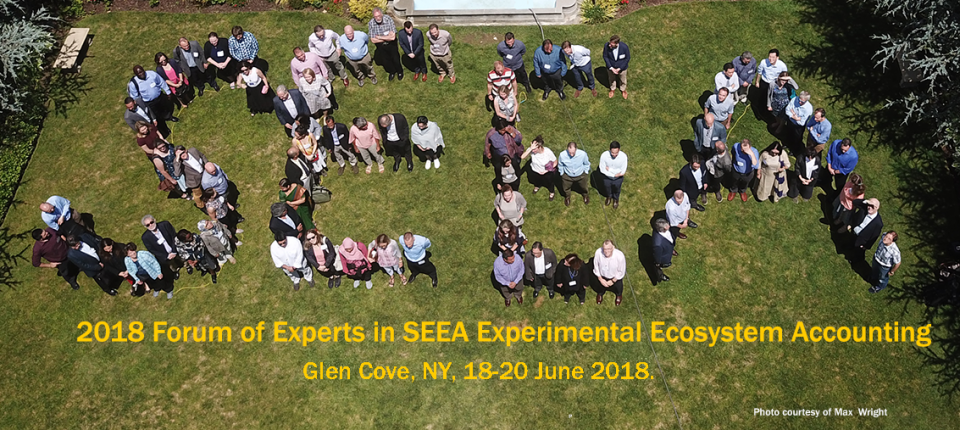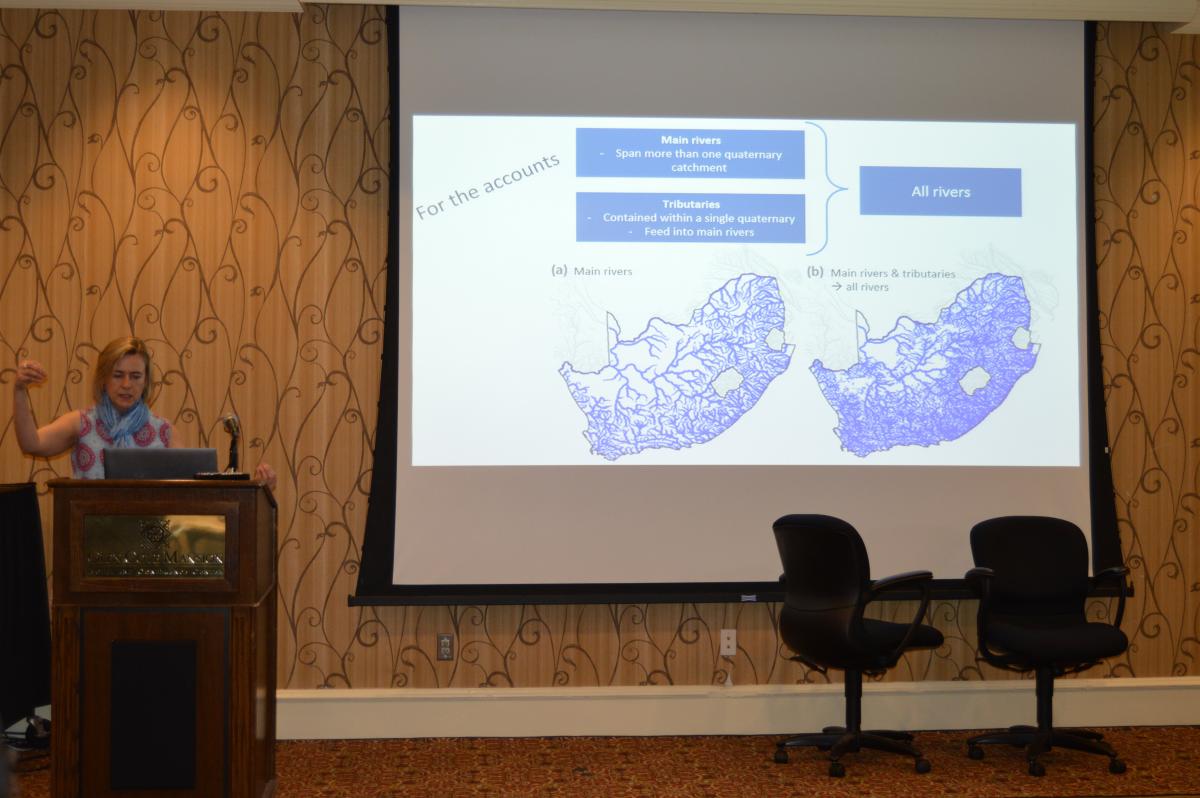2018 Experts Forum Highlights Ecosystem Accounting Progress and Activity

The theory and practice of ecosystem accounting took center stage in June as experts from around the world convened in Glen Cove, New York to inform the revision of the SEEA Experimental Ecosystem Accounts (SEEA EEA). The 2018 Forum of Experts in SEEA Experimental Ecosystem Accounting featured discussions of best practices, recent methodological advances and lessons drawn from countries’ experiences developing ecosystem accounts.
By design, the revision is a truly collaborative process, drawing upon the experience and expertise of the various communities represented at the forum. The aim for the revision is to move beyond the “experimental” qualifier for ecosystem accounts and toward agreed concepts, methods and classifications for standardization.
The work of the conference centered around four key issues on the SEEA EEA research agenda.
1) Spatial areas - establishing statistically and accounting relevant classifications for ecosystem types based on land cover and other characteristics.
2) Ecosystem condition - defining characteristics and indicators of the changing capacity of ecosystems to supply ecosystem services.
3) Ecosystem services - improving definitions for a select group of ecosystem services and a subsequent agreed classification that is appropriate from an accounting perspective.
4) Valuation - agreeing on preferred valuation methods for ecosystem services and assets and their recording in accounts.
Participants worked in breakout sessions to address fundamental questions associated with the four research issues. These discussions identified priority areas to be addressed during the revision process as well as the different stakeholder communities to engage. The results will feed into the work plan for the SEEA Ecosystem Accounts (SEEA EA), which is scheduled to be completed by 2020.
The availability of data was a common topic – both the reality of data gaps and the question of how to take advantage of the explosion of new data from Earth observation and other rapidly advancing technologies in a way that integrates with existing national accounts data. In addition, the interface between the accounts and decision-makers generated considerable discussion, particularly the need to create accounts that are both scientifically valid and provide useful guidance to policymakers and other stakeholders.
The forum provided an opportunity for countries to share their experiences with ecosystem accounting during breakout sessions dedicated to specific topics. In addition, representatives from Brazil, China, Costa Rica, the Czech Republic, Indonesia, Mexico, and the Philippines presented overviews of their ecosystem accounts, which provide information on ecosystem services such as coastal protection, carbon storage and food crop production among others. Brazil, China, and Mexico (along with India and South Africa) are part of a major European Union-funded project to advance and mainstream natural capital accounting through the creation of pilot ecosystem accounts.

Ms. Mandy Driver (SANBI) presenting South Africa's ecosystem accounts
Many participants noted the sophistication and cogency of the forum’s discussions and presentations. The theory and practice of ecosystem accounting is maturing alongside a growing network of scholars and policymakers - providing evidence that the SEEA EEA is making significant progress in mainstreaming the concept into accounting systems across the globe.
The Forum was organized by the United Nations Statistics Division (UNSD) in collaboration with the World Bank, and the European Union through the project “Natural Capital Accounting and Valuation of Ecosystem Services.” Forum presentations and the complete agenda are available here.
